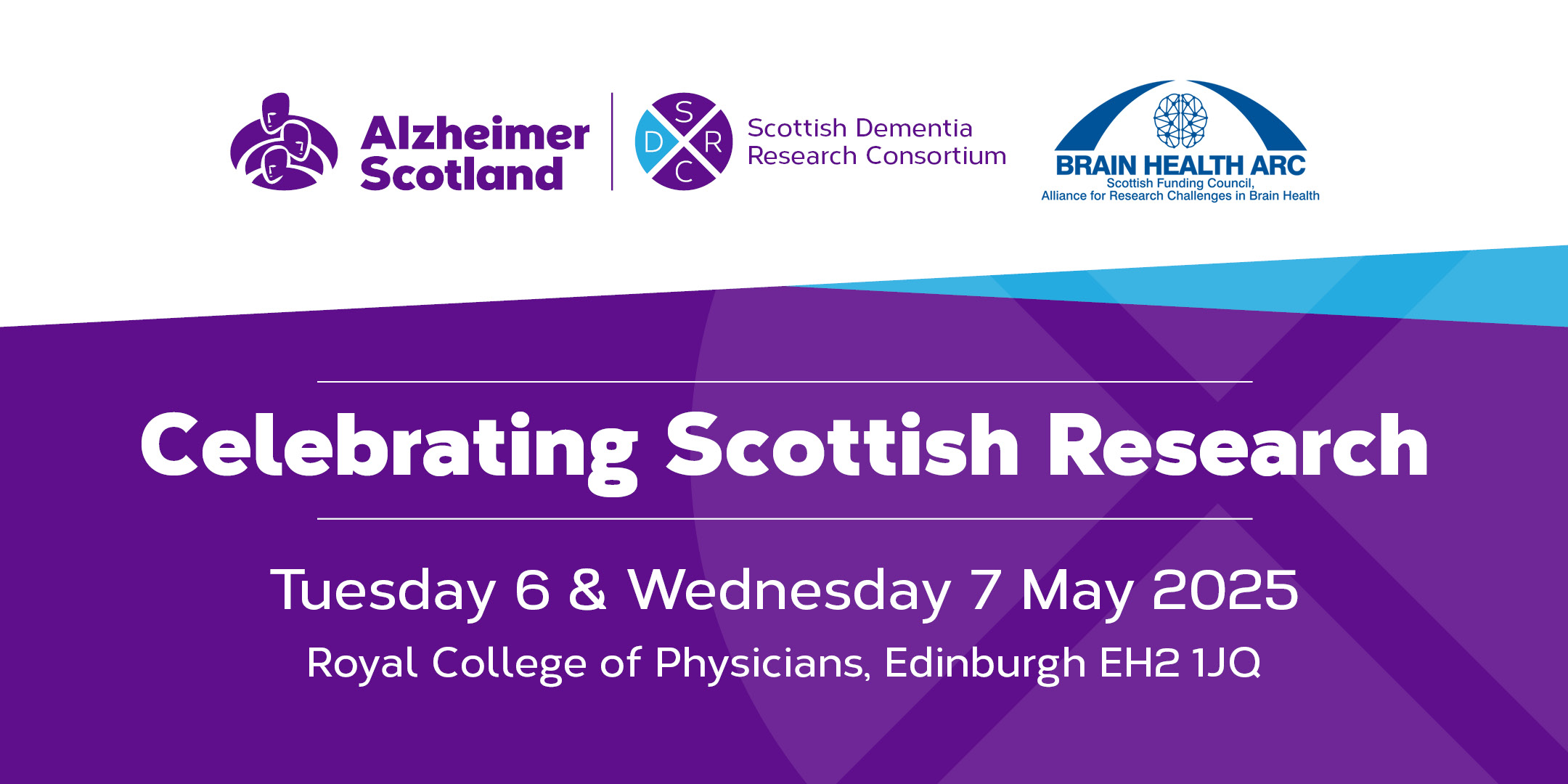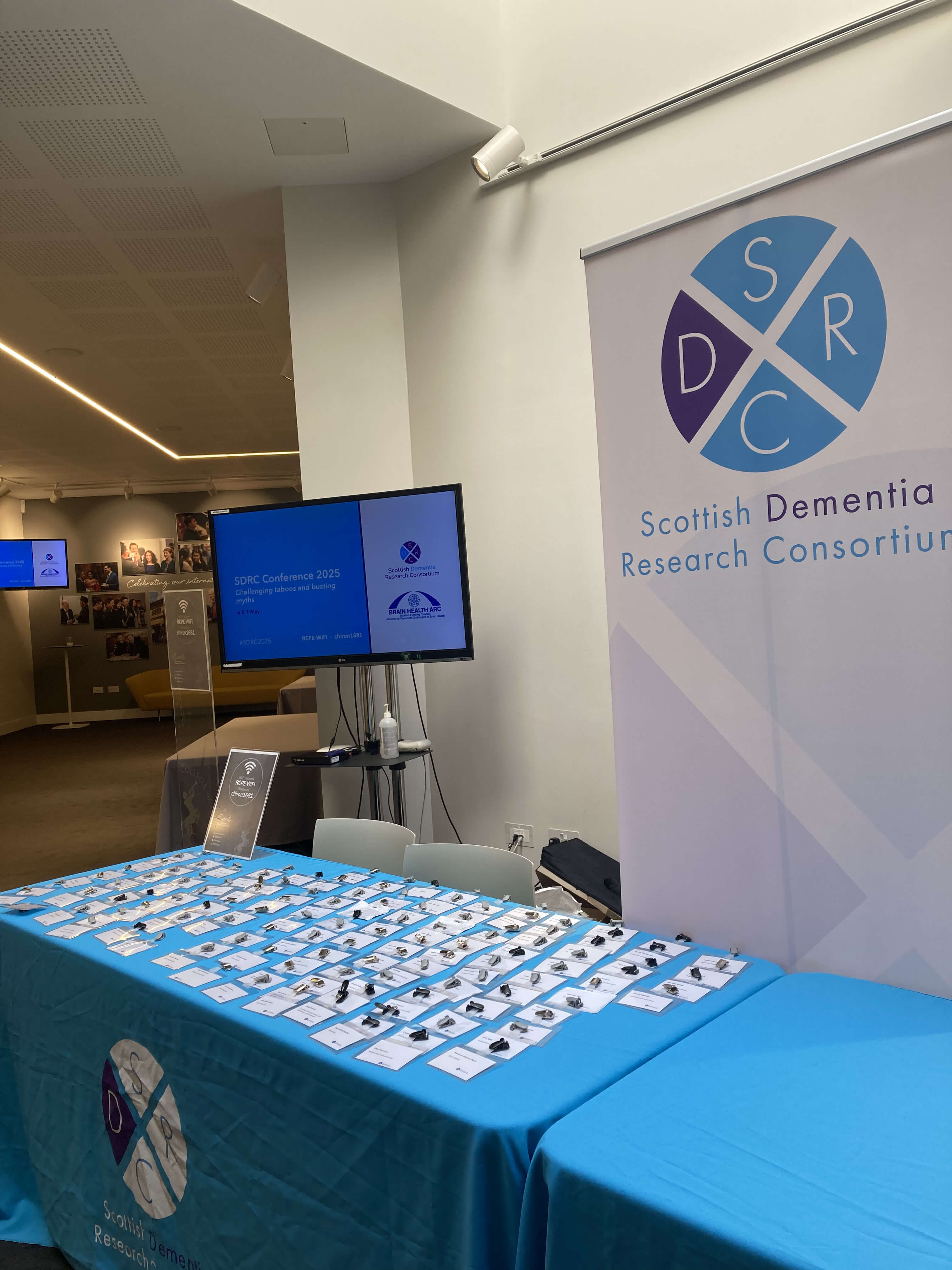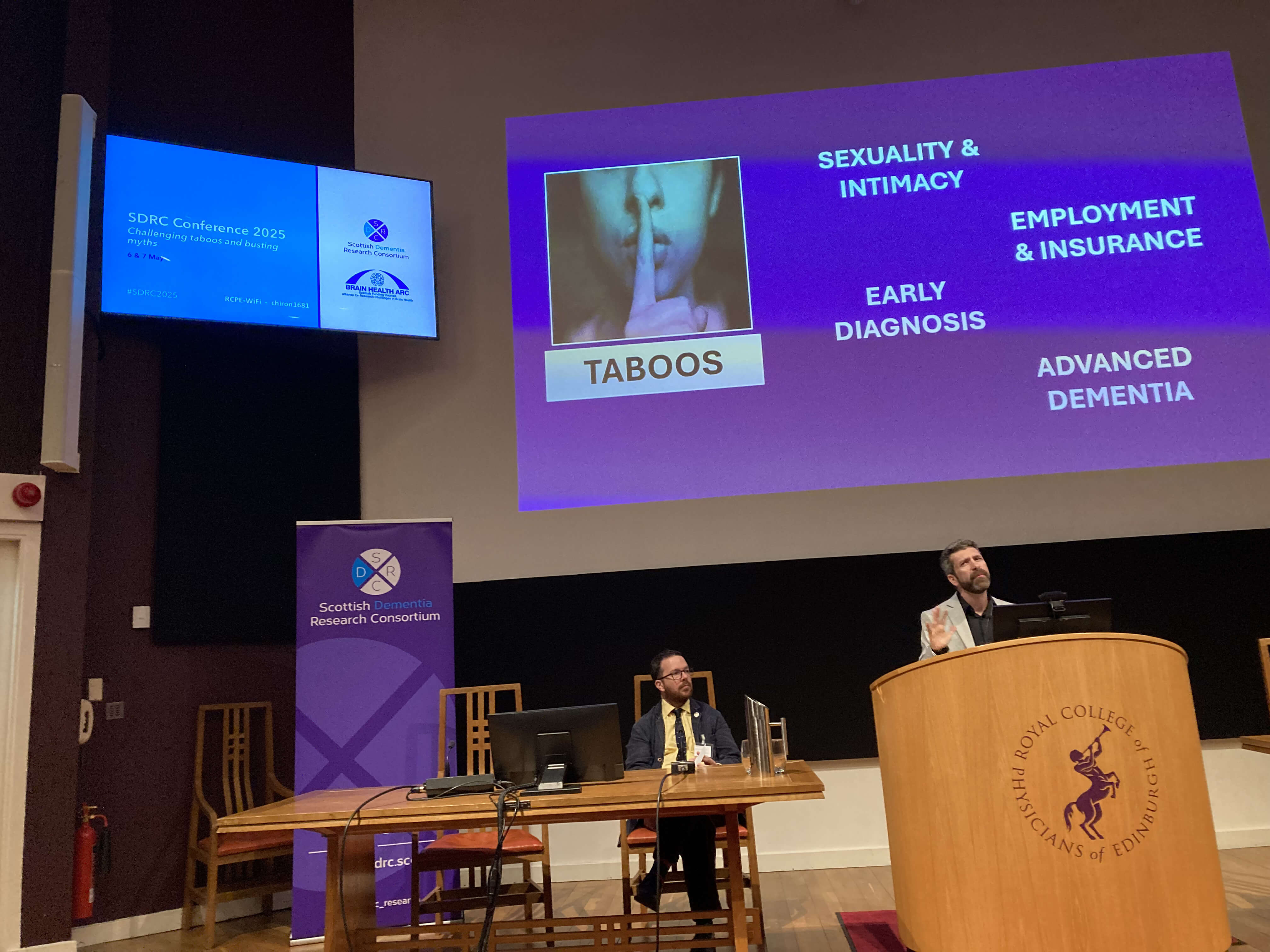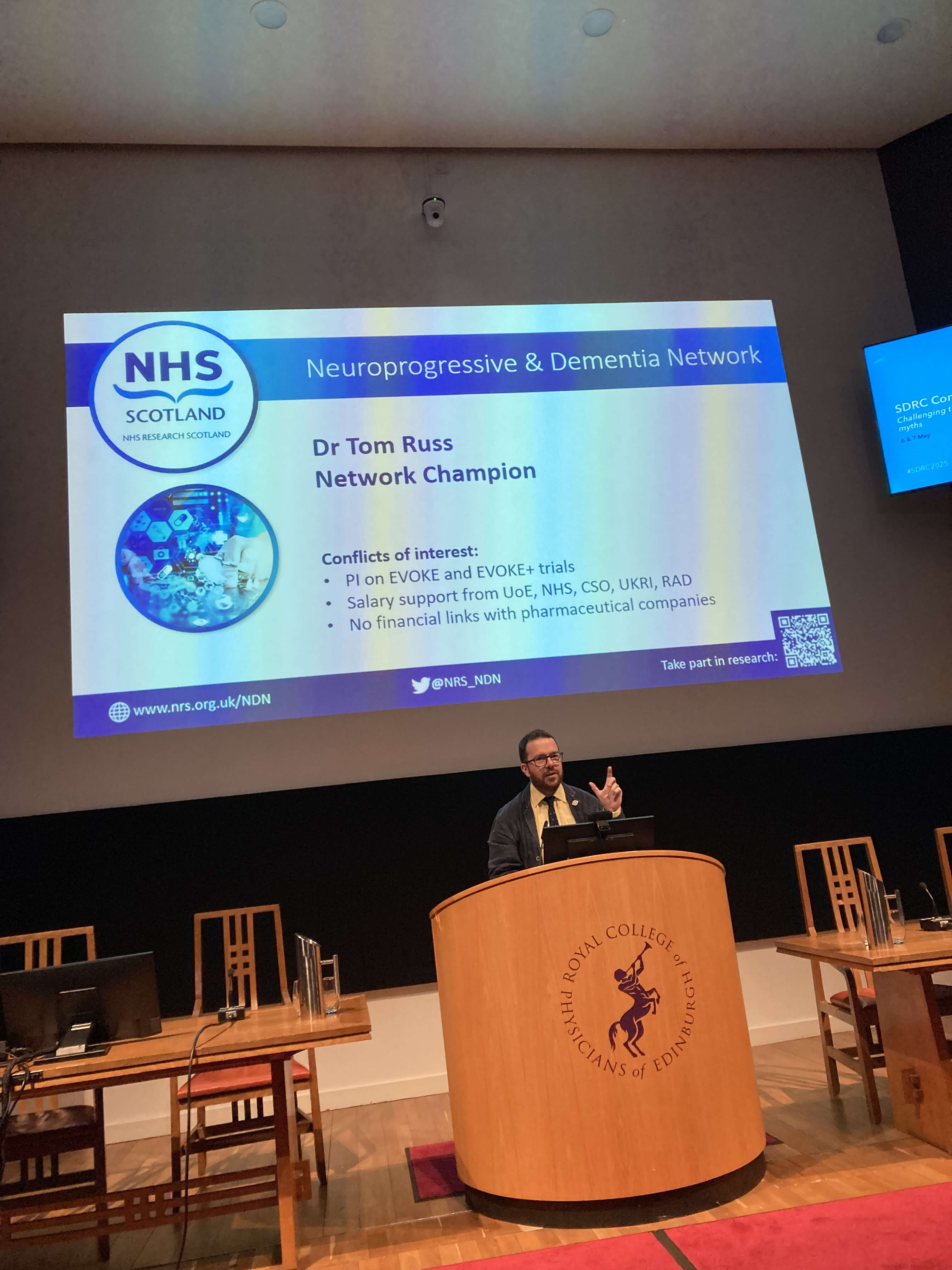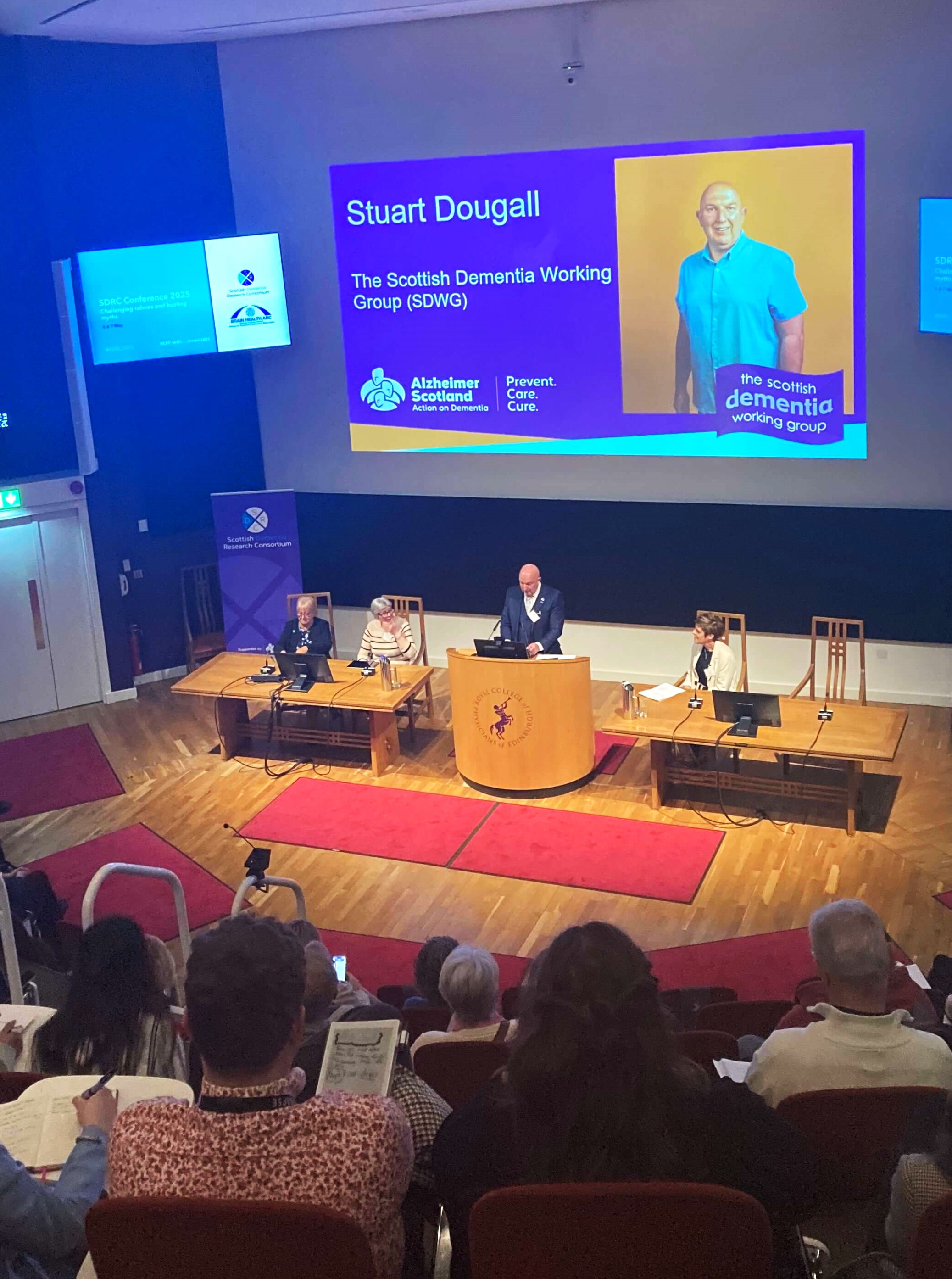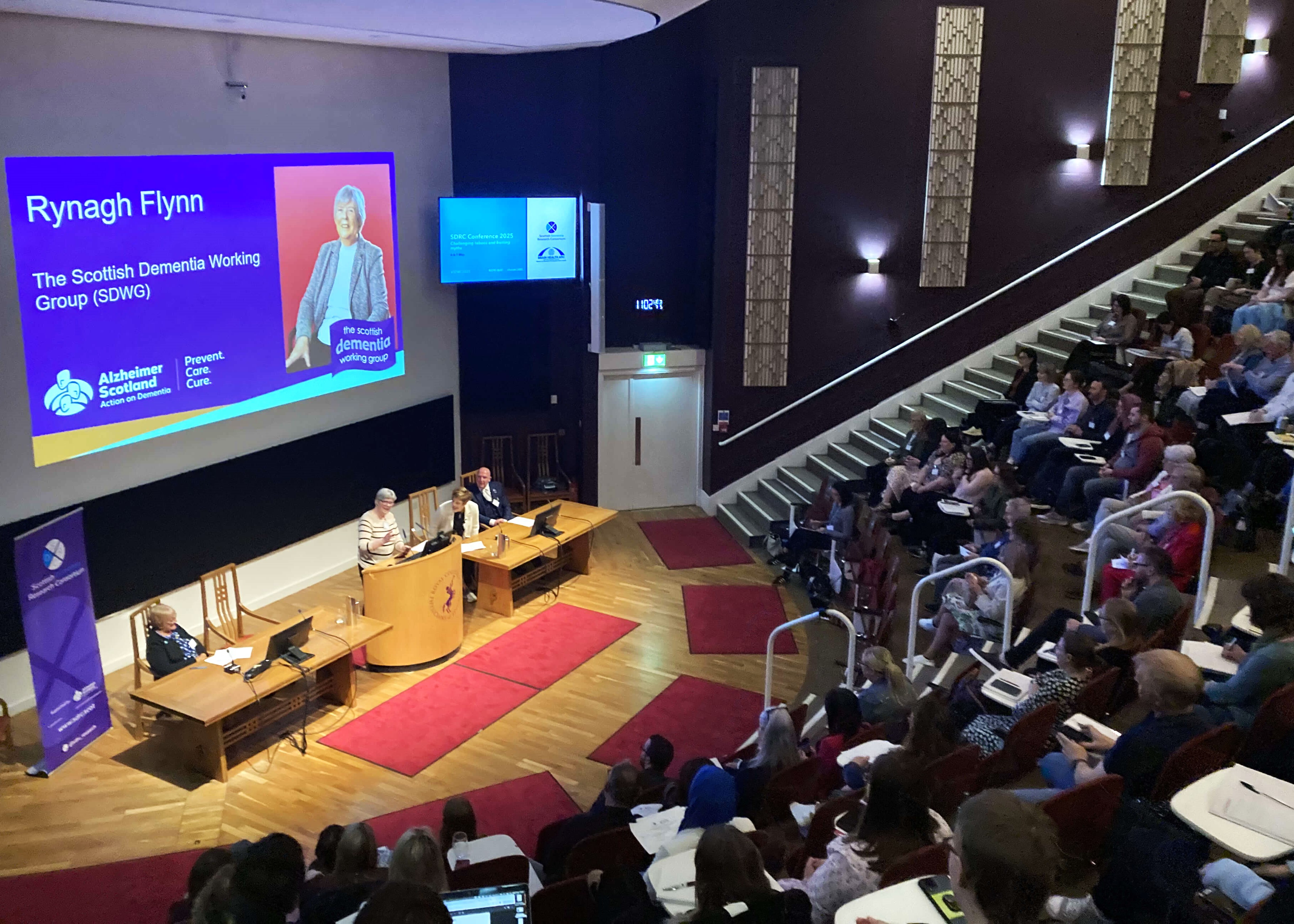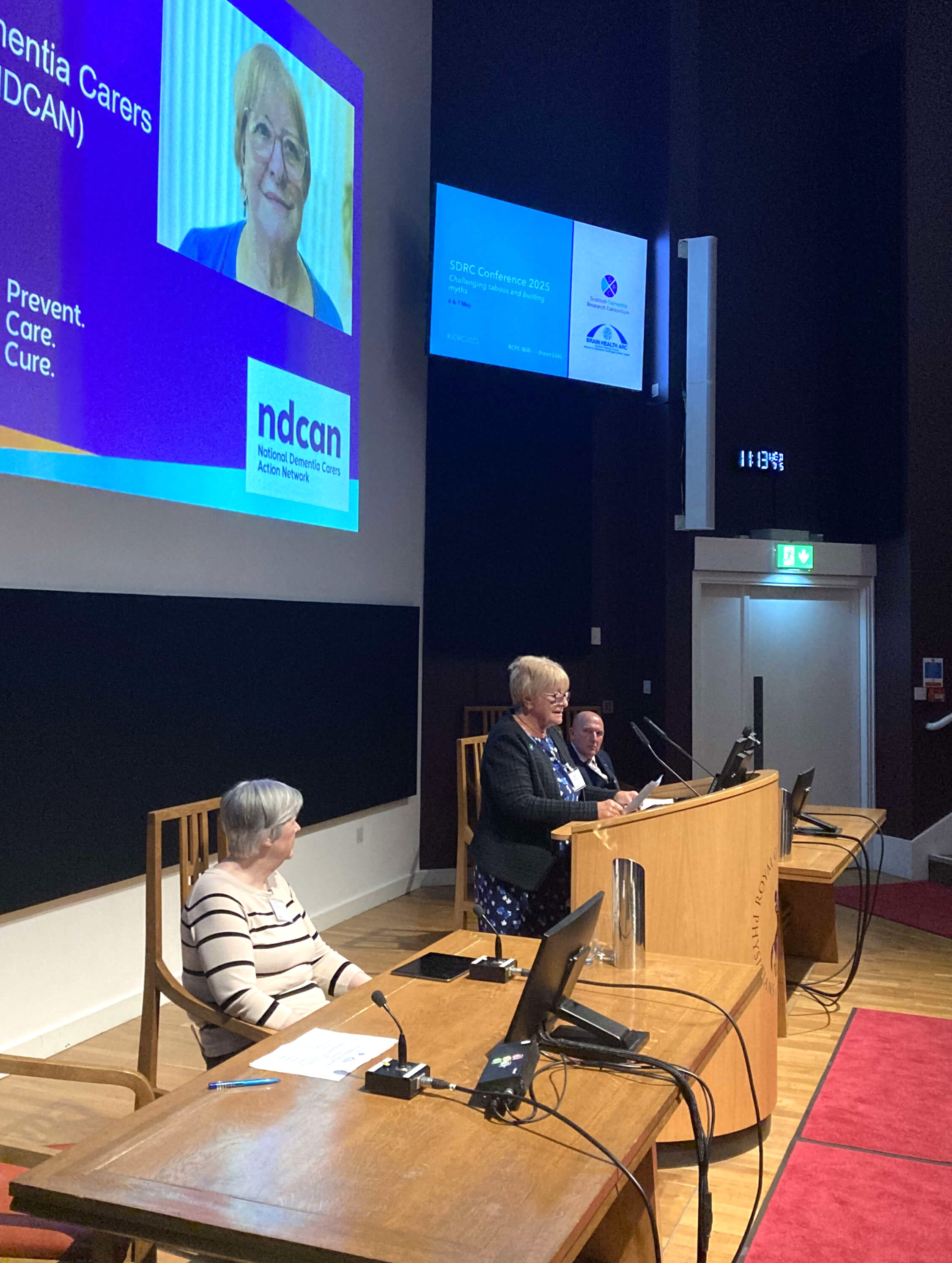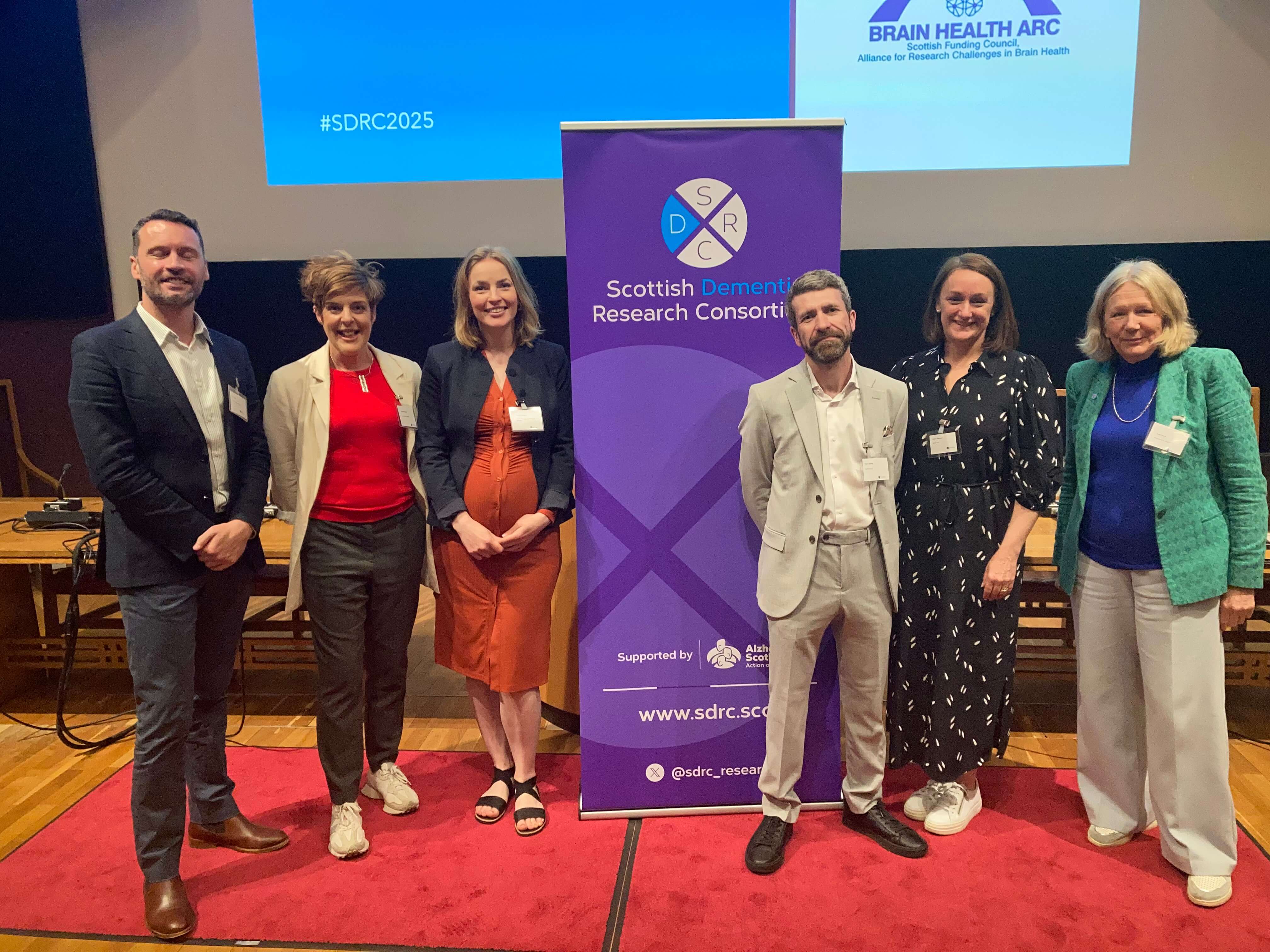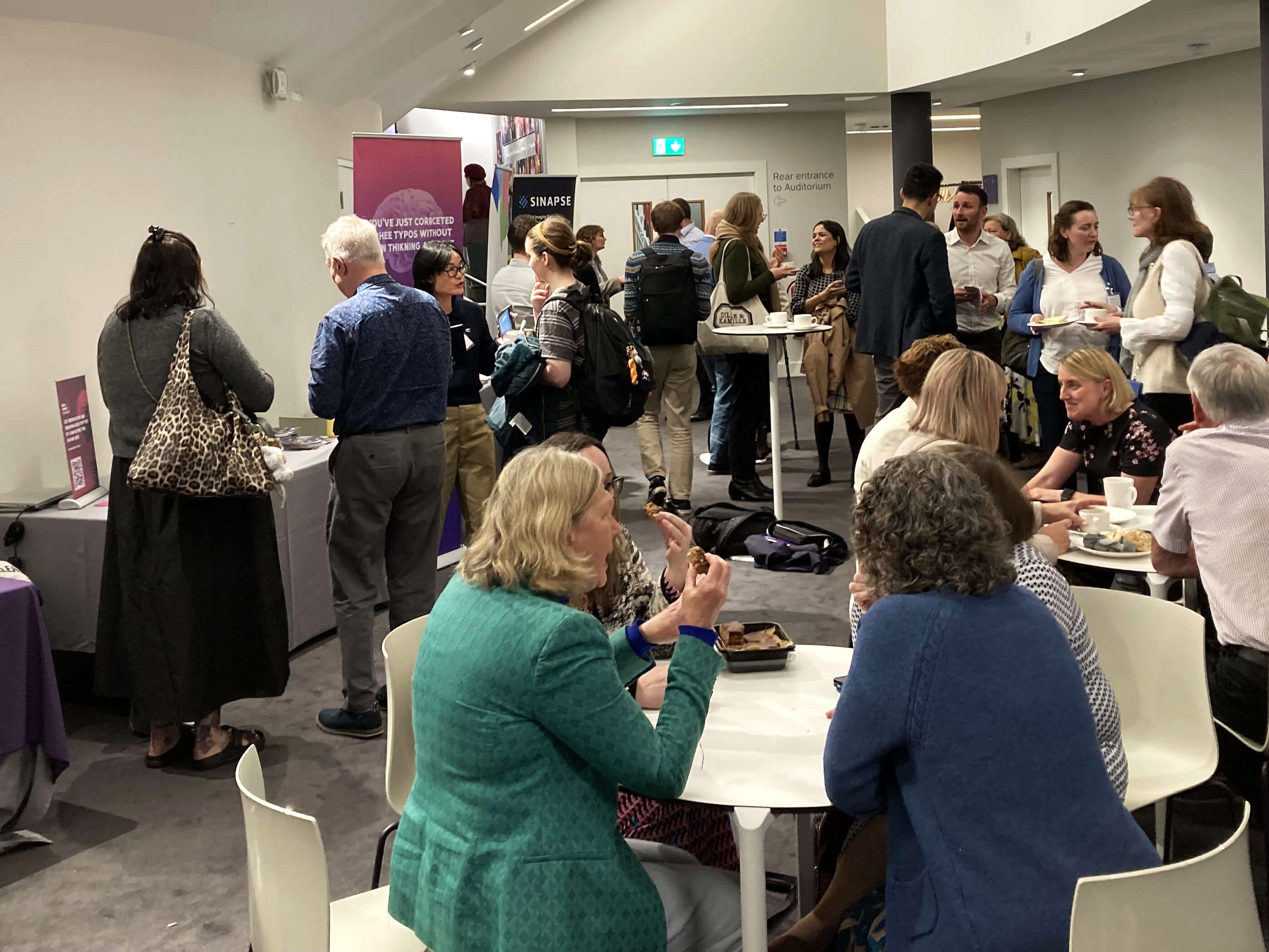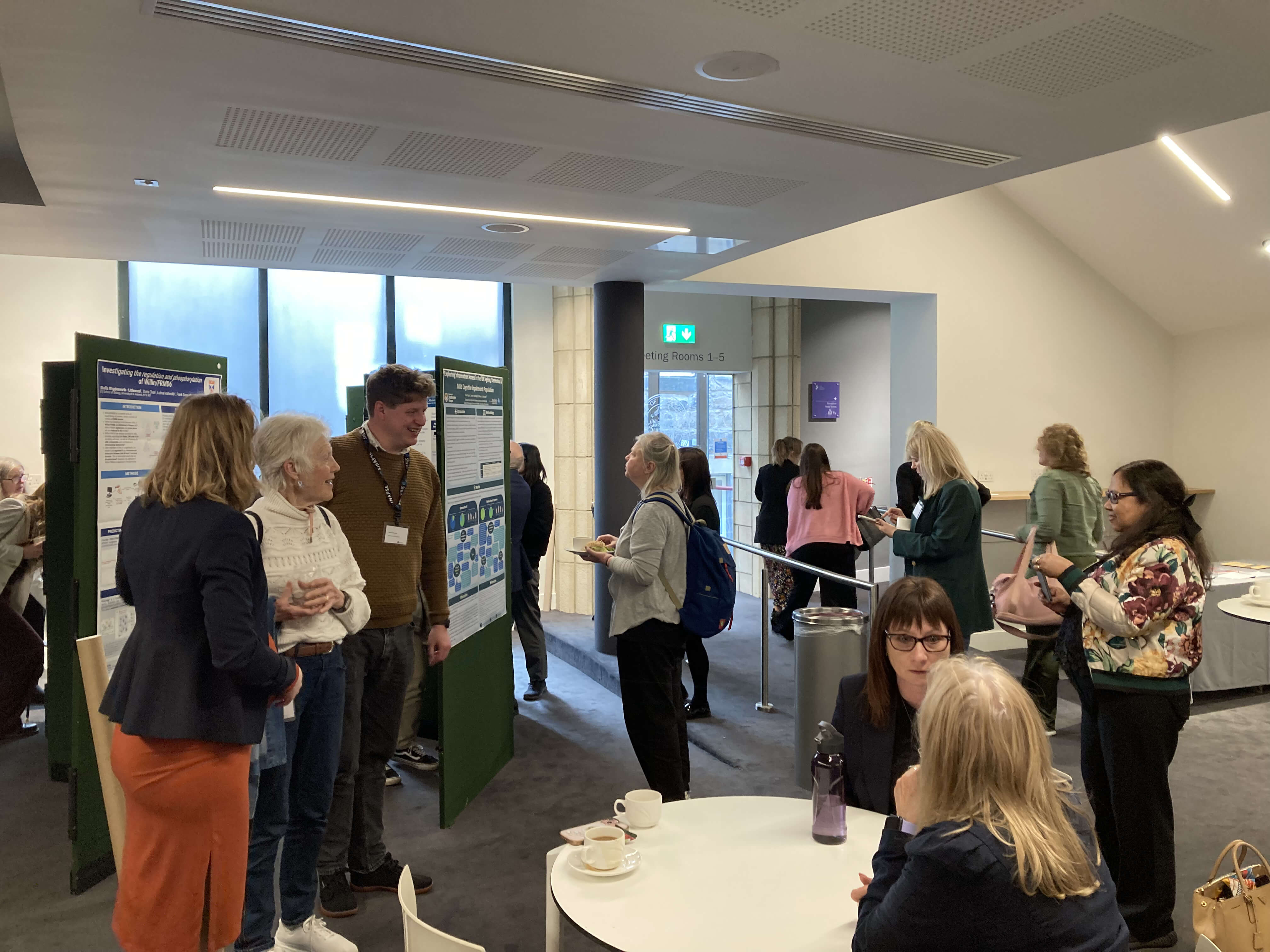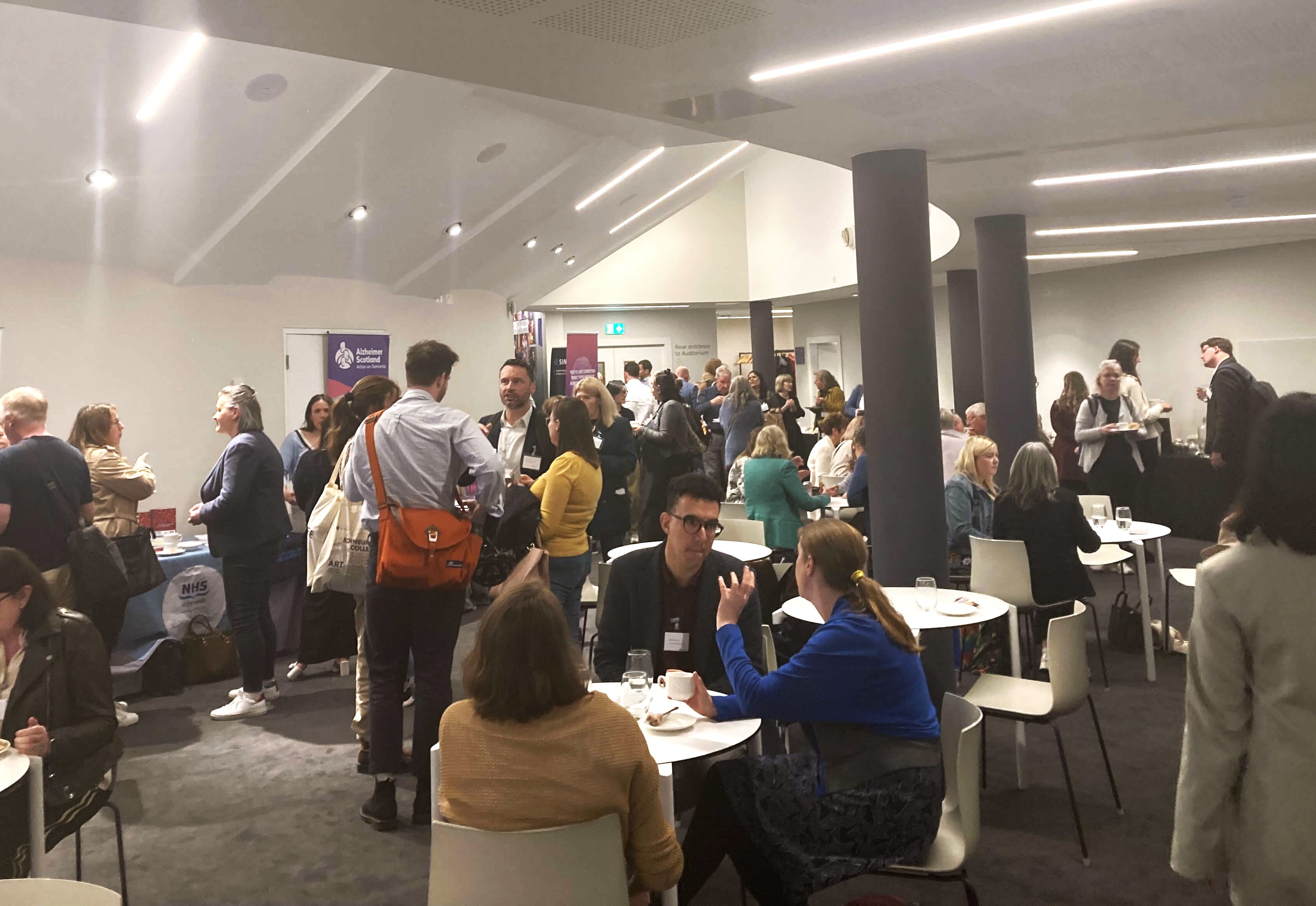Conference 2025
The SDRC Conference 2025 took place on 6-7 May in Edinburgh.
This two day event celebrated a range of Scottish dementia research with the focus on busting research myths and challenging some of the taboos that still exist.
There were keynote talks from world-leading researchers and presentations from early career researchers and those with lived experience, from across Scotland and across disciplines.
There was also plenty of discussion and networking opportunities among the over 160 people in attendance.
We will uploading the videos from the Conference soon, see photos below.
Conference 2025 summary
Conference 2025 videos
Day 1: Tuesday 6 May
Day 2: Wednesday 7 May
Conference Awards
As part of our commitment to celebrate researchers, the SDRC Conference features awards which recognise the best of the speaker and poster presentations across both days. The standard or presenters was, as always, extremely high. After an extensive deliberation process, the judges selected the following researchers for an award. Congratulations!
Best Poster Presentations
- Katie Davis- Open University
- Mihaela Lyutskanova – University of Dundee
- Stella Wigglesworth-Littlewood – University of St Andrews
Best Oral Presentations
- Molly Sutherland Murray – University of the West of Scotland
- Malwina Niechcial-McKenna – Heriot-Watt University
- Claire Rogers – University of Strathclyde
More about our Events
Past SDRC Conferences
Take a look back at previous years’ SDRC Conferences. We have photos, videos and summaries of the discussions on the day.
Webinar Series
The SDRC webinar series feature world-leaders and contain a wealth of information on a variety of topics, including on brain health and dementia research topics and career advice.

